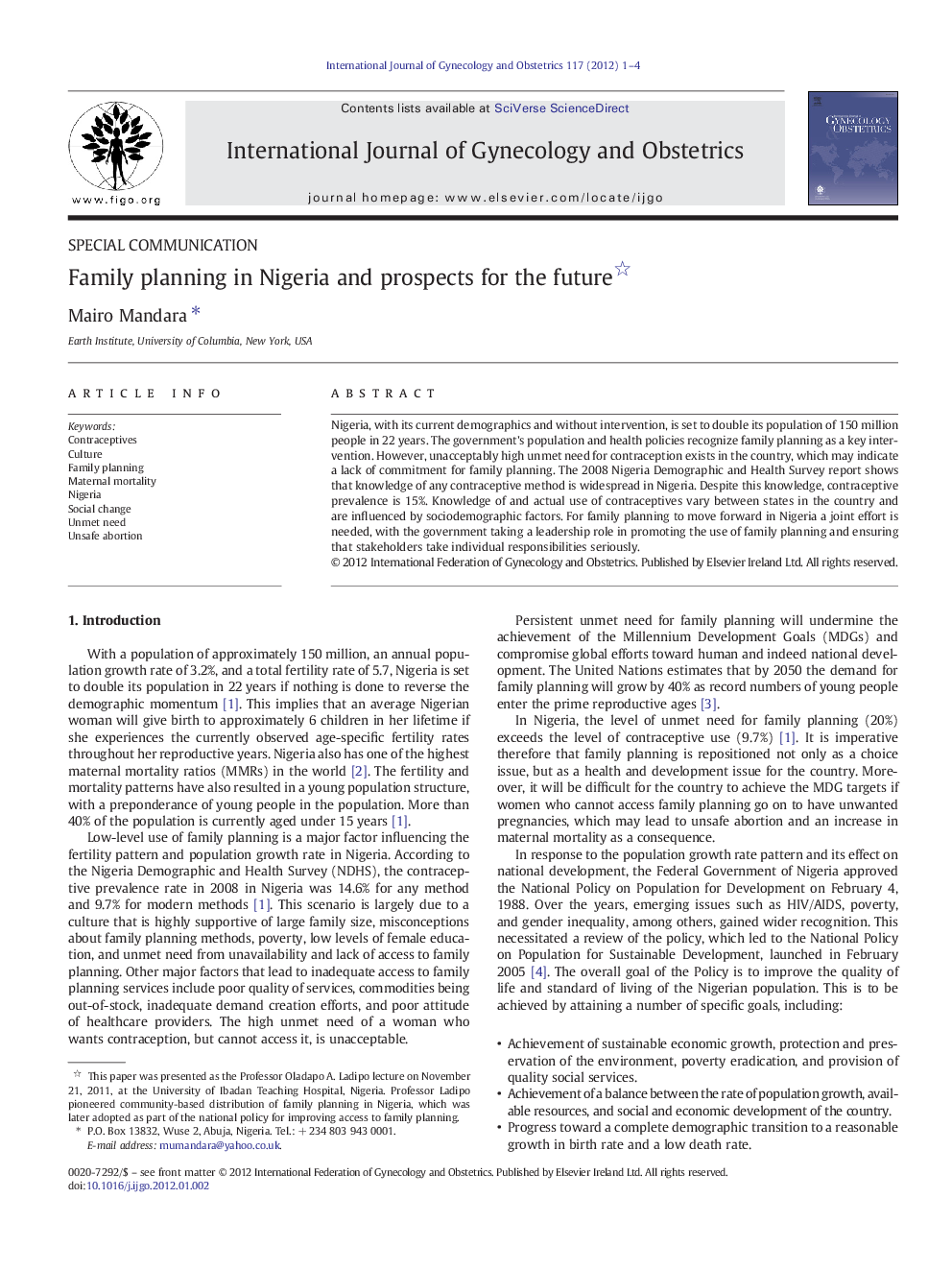| Article ID | Journal | Published Year | Pages | File Type |
|---|---|---|---|---|
| 3949302 | International Journal of Gynecology & Obstetrics | 2012 | 4 Pages |
Nigeria, with its current demographics and without intervention, is set to double its population of 150 million people in 22 years. The government's population and health policies recognize family planning as a key intervention. However, unacceptably high unmet need for contraception exists in the country, which may indicate a lack of commitment for family planning. The 2008 Nigeria Demographic and Health Survey report shows that knowledge of any contraceptive method is widespread in Nigeria. Despite this knowledge, contraceptive prevalence is 15%. Knowledge of and actual use of contraceptives vary between states in the country and are influenced by sociodemographic factors. For family planning to move forward in Nigeria a joint effort is needed, with the government taking a leadership role in promoting the use of family planning and ensuring that stakeholders take individual responsibilities seriously.
